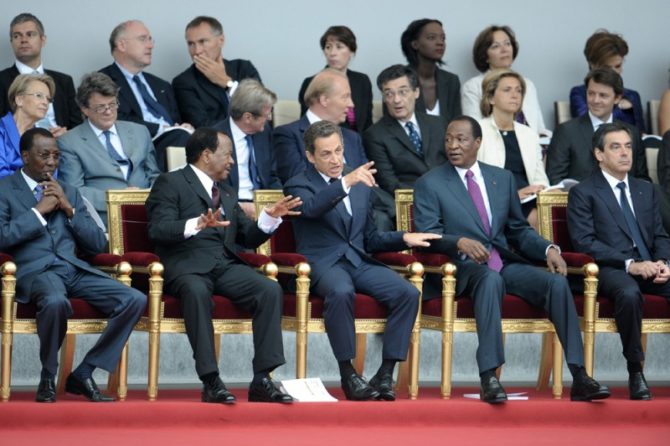THE FRENCH-AMERICAN FOUNDATION WEEKLY BRIEF

France
President Sarkozy appeared on French television station France2 on Monday, July 12 to promote his reform plan and to respond to various accusations that his administration was improperly involved in the finances of L’Oreal heiress Liliane Bettencourt. An article in Time Magazine argued that the TV appearance had done little to change the opinion of viewers, and Le Figaro reported that polls showed only 44% of French people found Sarkozy’s address convincing. French Labor Minister Eric Woerth, who has been caught up in the Bettencourt scandal, announced on Tuesday that he would accede to Sarkozy’s request and step down as treasurer of the president’s UMP party.
The French National Assembly overwhelmingly voted to approve a law banning the wearing of the Islamic full face veil in public places. The ban, which is now headed for a September vote in the Senate, passed with 335 votes in favor and one opposed. Most members of the opposition Socialist Party refused to vote in protest of the law, which would fine women 150 Euros and potentially make them attend citizenship classes if they wear the veil in public. The U.S. State Department voiced its disapproval of the ban, and a number of commentators have argued against it. For example, an article in The Guardian argued that the ban affects only 2,000 women in France, and took issue with the premise that the veil is fundamentally demeaning and a challenge to public safety.
Only one day after the launch of the French website France.fr, its servers were overwhelmed by visitors, and the site was temporarily shut down. The site, which launched on Bastille Day, was intended to promote France to tourists and to serve as a resource for French citizens, offering information about various aspects of French life. L’Express reported that the site, which is translated into five languages and cost 800,000 Euros to create, was riddled with bugs.
At a Bastille Day meeting with representatives from 13 African nations, President Sarkozy announced that France would raise the military pensions for its African war veterans to the level of its French veterans. The pensions of African veterans, who fought in France’s African colonies and also in the Indochina wars of 1945-1954, were “frozen” by a 1959 law. According to Le Figaro, as late as 2006, when a French veteran received around 460 Euros a month, his Senegalese counterpart received 193 Euros, an Algerian 60 Euros, and a Vietnamese received only 38 Euros. The new pension law, which comes too late for the many veterans who have died since their service, will affect about 30,000 people.
Le Figaro reported that 197 cars were burned in the Ile-de-France region on the nights of July 13 and 14, during the Bastille Day festivities. Interior Minister Brice Hortefeux had previously announced that he would not release the data on the number of cars burned over the holiday, to avoid a “competition between cities” over car burning, according to Rue89. But in an interview with Le Post, Dominique Pradalié, director of the National Journalists’ Union [Syndicat national des journalistes], took issue with the minister’s decision, calling it “ridiculous and dangerous. It’s not because we’re not talking about the burning cars that this will stop happening.”
Rumors circulated that the price of Vélib‘ bicycle rentals in Paris may rise from 29 euros annually to 40 or 45 euros.
Share to: Facebook Twitter LinkedIn Email
Leave a reply
Your email address will not be published. Required fields are marked *



